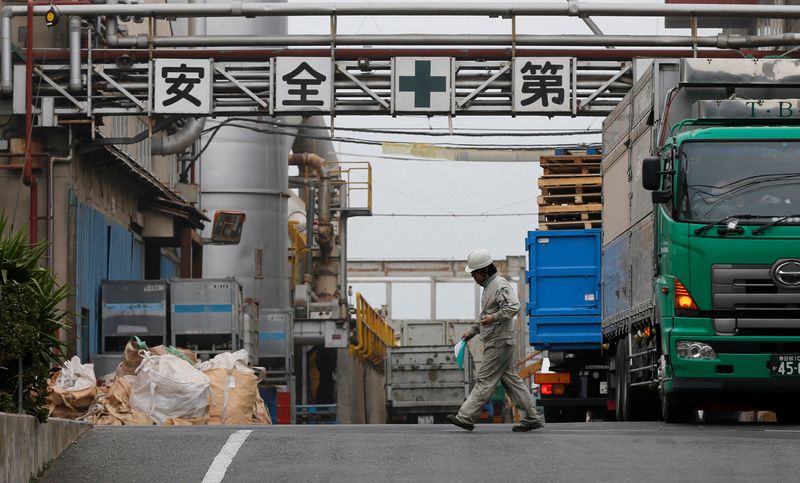TOKYO (Reuters) – Japan’s core machinery orders likely dropped in January from December’s level, a Reuters poll found on Friday, predicting the first monthly decline in four months as renewed emergency curbs to slow the spread of COVID-19 hurt business investment.
Regarded as an indicator of capital spending for the next six to nine months, core machinery orders likely fell 5.5% in January from December, the poll of 19 economists found.
Core orders, which excludes orders from shipbuilders and electric utilities, were forecast to have slipped 0.2% in January from the same month a year ago.
“Orders from manufacturers remained solid thanks to external demand recovery,” said Yusuke Shimoda, senior economist at Japan Research Institute.
“But non-manufacturers turned cautious as renewed curbs to contain the pandemic could damage the economy.”
The economy is widely viewed to be shrinking in the current quarter as the anti-virus restrictions have hurt consumer spending and firms, especially in the service sector.
The government will release core orders data at 8:50 a.m. Japan time on Monday (2350 GMT on Sunday ).
Trade data is set to be released on Wednesday.
The poll showed exports in February were expected to have decreased 0.8% from year-ago levels. It would be the first decline in three months, but that was partly due to Lunar New Year holidays falling in February this year, having fallen in January last year.
Imports are forecast to have grown 11.9% in February from a year earlier, resulting in a trade surplus of 420 billion yen ($3.86 billion).
Consumer price index (CPI) data, due to be released next Friday, is expected to show a 0.4% fall in February, compared with a 0.6% fall in January.
The fall in the CPI, which includes oil products but excludes volatile fresh food prices, was expected to be slower in February because a decline in energy prices was less steep, analysts said.
(Reporting by Kaori Kaneko; Editing by Simon Cameron-Moore)



















